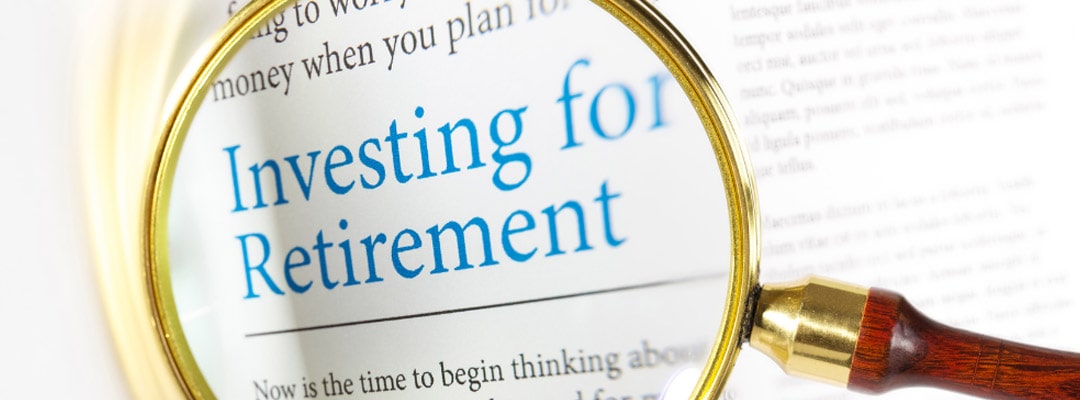Saving for retirement is tough, and relying solely on stocks and bonds may not be enough.
The stock market can be unpredictable.
It’s time to explore other options for a secure retirement.
That’s where “alternative investments” come in.
They offer the potential for higher returns and can help protect your savings. This article will explain what they are and how they can fit into your retirement plan.
You can also get a better understanding of retirement by looking at your retirement score.
For additional financial resources, be sure to visit the Institute of Financial Wellness (IFW) and access a library of knowledge, including a retirement guide and debt management strategies.
Hedge Funds: High-Risk, High-Reward Potential

What Are Hedge Funds?
Imagine a group of expert investors pooling their money together.
They use clever strategies to try and make big profits, no matter if the market is going up or down.
That’s basically what a hedge fund is. They don’t just buy stocks and hope for the best; they use all sorts of fancy tactics, like betting on one company to do well while another one struggles.
The Allure of Hedge Funds for Retirement
Why would anyone consider putting their retirement savings into something so risky?
Well, the potential rewards are tempting. Hedge funds aim to make money even when the market is in a slump. This means your retirement nest egg could keep growing even during tough times.
Plus, they can help spread out your investments, so you’re not putting all your eggs in one basket.
The Risks and Challenges
But hold on, it’s not all sunshine and rainbows. Hedge funds come with a hefty price tag – they charge high fees for their expertise, sometimes leveraging AI-driven algorithms to make complex investment decisions.
Also, it’s not like you can cash out whenever you want. Your money might be locked in for a while, as some AI-powered trading strategies require longer time horizons to play out.
And let’s face it, understanding their strategies can be as confusing as trying to solve a Rubik’s Cube, especially when those strategies incorporate cutting-edge AI models and machine learning techniques.
Hedge Funds: Suitable for Your Retirement Portfolio?
So, are hedge funds right for your retirement plan? It depends.
They can offer big potential gains, but they’re also very risky. If you’re nearing retirement and can’t afford to lose any money, they’re probably not the best choice.
But if you’re younger and have a higher tolerance for risk, they could be worth considering. Just make sure you do your homework and understand what you’re getting into.
Remember: Investing always involves risk. It’s crucial to do your research and consider your financial goals and risk tolerance before making any investment decisions.
Bonds: The Stability Anchor

The Bedrock of Fixed-Income Investing
Think of bonds like an IOU from a company or the government. You lend them money, and they promise to pay you back with interest.
It’s a much safer alternative investment than something like venture capital, where you’re investing in brand-new companies that might not even make it.
Bonds are more like the steady, reliable friend in your group of asset classes.
The Benefits of Bonds for Retirement Portfolios
Bonds offer a sense of calm in the sometimes chaotic world of investing.
They provide a regular income stream, like a paycheck, which can be very comforting when you’re retired and living on a fixed budget.
Plus, they help balance out the ups and downs of your other investments, like stocks. It’s like having a sturdy anchor to keep your ship from rocking too much in the stormy seas of the market.
The Risks and Considerations of Bond Investing
Now, bonds aren’t entirely risk-free. If interest rates go up, the value of your bonds could go down.
And if the company or government that issued the bond runs into trouble, they might not be able to pay you back.
That’s why it’s important to understand bond ratings – they’re like a report card for how likely the issuer is to keep their promise.
A Safe Haven for Your Retirement Nest Egg?
Bonds may not offer the thrill of high-risk, high-reward investments, but they bring a sense of security to your retirement portfolio.
They’re like the dependable car that gets you where you need to go, even if it’s not the flashiest ride on the block.
If you’re looking for a steady income and a way to balance out the riskier parts of your portfolio, bonds could be a great fit.
Remember: Just like with any investment, it’s important to do your research and understand the risks before investing in bonds.
Consider your financial goals, risk tolerance, and time horizon before making any decisions. And if you’re unsure, don’t hesitate to seek advice from a financial professional.
Commodities: Riding the Waves of Market Fluctuations

The Tangible Assets
Imagine holding a gold bar or a barrel of oil. Or picture yourself gliding through the water in a kayak, the physical embodiment of adventure and exploration.
Those are commodities — real, physical things you can touch and experience.
They’re different from stocks or bonds, which represent ownership in a company or a loan to a government.
Commodities are more like the ingredients in a recipe: they’re the basic building blocks of the economy.
Investing in them can be a way to diversify your portfolio, adding something different from the usual mix of stocks, bonds, and even alternative assets like private equity funds.
Think of it like adding some spice to your financial meal, or embarking on a thrilling kayaking expedition to explore new financial territories.
The Potential of Commodities for Retirement Portfolios
Commodities can be a bit wild, their prices going up and down like a rollercoaster. But that can actually be a good thing for your retirement portfolio.
When the stock market is down, commodities like gold might go up, helping to balance out your losses. They can also act as a shield against inflation, which is when the prices of everyday things go up.
It’s like having an umbrella when it’s raining money.
The Volatility and Challenges of Commodity Investing
But just like a rollercoaster, commodities can be a bumpy ride.
Their prices can change quickly and dramatically based on things like weather, politics, or even just rumors. It’s not like investing in a stable company or a government bond.
It would be best if you were prepared for some ups and downs. It’s more like surfing than sailing: you need to be able to ride the waves.

A Diversifier for Your Retirement Portfolio?
Commodities can add a bit of excitement and potential protection to your retirement portfolio. They’re like the adventurous friend who’s always up for trying something new.
But they’re not for the faint of heart. If you’re looking for a smooth, predictable ride, you might be better off sticking with mutual funds or even exploring other alternative assets like real estate.
But if you’re willing to take on some risk for the potential of higher rewards and added diversification, commodities could be worth considering.
Just make sure you understand the risks and have a plan for managing them.
Remember: Investing in commodities requires careful consideration and understanding of the market dynamics.
It’s important to do your research and consider seeking advice from a financial professional before making any investment decisions.
Private Equity: Tapping into the Growth Potential of Private Companies

Investing in the Future
Imagine investing in a company before it becomes the next big thing, like buying a ticket to a concert before it sells out. That’s what private equity is all about.
It’s like being a venture capitalist, but instead of just investing in startups, you’re also investing in established companies that aren’t listed on the stock market.
It’s like getting in on the ground floor of something exciting before everyone else knows about it.
It’s a bit like exploring the hidden treasure in the private markets, away from the hustle and bustle of the stock exchange.
The Potential of Private Equity for Retirement Portfolios
Private equity can be a bit like planting a tree. It takes time to grow, but if you’re patient, it can bear a lot of fruit.
The potential returns can be much higher than what you’d get from traditional asset classes like stocks and bonds. That’s because you’re investing in companies with a lot of growth potential.
It’s like betting on the underdog to win the championship. And if they do, you could be in for a big payoff.
The Challenges and Risks of Private Equity Investing
But just like planting a tree, private equity requires patience. You can’t just dig it up and expect to eat the fruit right away.
Your money might be tied up for years, even a decade or more.
And there’s no guarantee that the tree will even grow. The company you invest in might not succeed, and you could lose your entire investment.
It’s a bit like exploring a new territory: there’s a lot of potential but also a lot of unknowns. It’s certainly not as straightforward as buying a house through real estate investing.

A Long-Term Play for Your Retirement?
Private equity can be a powerful tool for boosting your retirement savings, but it’s not for everyone.
It’s like a marathon, not a sprint. You need to be in it for the long haul and be comfortable with the risks. If you’re nearing retirement or need access to your money soon, it’s probably not the best choice.
But if you’re young and have a long time horizon, and you’re looking for the potential for big returns, private equity could be worth considering.
It’s a bit like adding a turbocharger to your retirement portfolio. Just make sure you understand how it works and are prepared for the ride.
Remember: Investing in private equity involves significant risks, including illiquidity and the potential for loss of principal.
It’s important to conduct thorough due diligence and seek advice from a financial professional before making any investment decisions.
Also, keep in mind that other alternative investments, such as private credit, might offer a balance between risk and return that’s better suited to your individual needs and circumstances.
Comparing Alternative Investments: Which is Right for You?

Risk and Return Profiles
Think of a scale: “low risk, low reward” on one side, “high risk, high reward” on the other.
Different investments sit at various points. Hedge funds are on the high-risk, high-reward side, with big potential gains but also big losses.
Bonds are closer to low-risk, low-reward, and generally safer but with slower growth. It’s like choosing a roller coaster or a merry-go-round.
Liquidity and Time Horizon
Some investments are like piggy banks, which are easily accessible. Others are like time capsules, buried for years.
Many alternative investments, like private equity, are the latter. Consider your time horizon. If you’re nearing retirement, you don’t want all your money locked away.
It’s like packing for a trip: you need the right clothes for the weather and the right investments for your timeline.
Fees and Expenses
Investing has a price tag. Some are pricier, like hedge funds with their high fees, similar to a fancy personal trainer.
Others, like ETFs, are cheaper, like a group fitness class. Factor in fees when comparing, like comparing two pizzas: one might look bigger, but if it’s twice the price, is it a better deal?
Diversification and Portfolio Fit
Your portfolio is like a basketball team: you need a mix of skills. Diversification is key, like a balanced diet.
Alternative investments add variety beyond stocks and bonds, like adding international flavors to your meal.
Remember: There’s no one-size-fits-all. The best choice depends on your situation, goals, and risk tolerance.
Do your research, understand the risks and rewards, and consider seeking professional advice.
Constructing Your Retirement Portfolio with Alternative Investments

Assess Your Risk Tolerance and Goals
Before diving into the world of alternative investments, it’s important to understand your comfort level with risk.
Are you okay with potential ups and downs, or do you prefer a smoother ride? Also, think about your goals. Are you looking for fast growth, steady income, or a mix of both?
It’s like choosing a hiking trail: do you want a challenging climb with stunning views or a leisurely stroll through the woods?
Conduct Thorough Research and Due Diligence
Alternative investments can be complex. Before investing, do your homework. Understand what alternative investments are and the specific risks involved.
It’s like learning a new recipe: you wouldn’t just throw ingredients together without reading the instructions, right?
Researching how to invest in a hedge fund or understanding the ins and outs of commodities investing is crucial. If you’re unsure, ask a financial advisor for help.
They’re like experienced hikers who can guide you along the trail.
Start Small and Diversify
Don’t put all your eggs in one basket. Start with a small portion of your retirement savings in alternative investments and spread it across different types.
This helps manage risk. It’s like trying different foods at a buffet: you get a taste of everything without overdoing it on one dish.

Regularly Review and Rebalance Your Portfolio
The financial world is constantly changing. What works today might not work tomorrow. Review your portfolio regularly and make adjustments as needed.
It’s like tending a garden: you need to prune and weed to keep it healthy.
If you’re unsure about alternative investing for retirement or are bonds a good investment for retirees given the current market, talk to your financial advisor.
They can help you make informed decisions and keep your portfolio on track.
Remember: Investing is a journey, not a destination. It’s about making smart choices today to secure a comfortable tomorrow.
With careful planning and a diversified approach, alternative investments can play a valuable role in helping you achieve your retirement goals.
Conclusion
Building a retirement plan is like building a sturdy house.
It would be best if you had a strong foundation of traditional investments, but alternative investments can add extra support beams and a fancy roof.
Whether it’s the potential high returns from working with hedge fund managers or the long-term growth of investing with private equity firms, exploring these options can pave the way to a more comfortable retirement, where you have the freedom to enjoy leisurely pursuits like golf whenever you please.
Remember, the key is to diversify and make informed decisions. So, start exploring and build the retirement of your dreams!
Frequently Asked Questions
What exactly are alternative investments?
Alternative investments are like the adventurous cousins of stocks and bonds. They include things like hedge funds, private equity, commodities, and real estate. They offer a different way to grow your money, but they also come with their own set of risks and rewards.
Are alternative investments only for the wealthy?
Not necessarily! While some alternative investments, like hedge funds, might have high minimum investments, others, like certain commodities or real estate investment trusts (REITs), are more accessible to everyday investors.
How do alternative investments fit into a retirement portfolio?
Think of alternative investments as adding spice to your retirement portfolio. They can offer potential for higher returns and help protect your savings from market swings. But it’s important to use them in moderation and balance them with more traditional investments.
Are alternative investments riskier than traditional investments?
Generally, yes. Alternative investments tend to be more volatile and less liquid than stocks and bonds. This means their value can fluctuate more, and it might be harder to sell them quickly if you need cash.
Do I need a financial advisor to invest in alternatives?
It’s highly recommended. Alternative investments can be complex and require specialized knowledge. A financial advisor can help you understand the risks and rewards and choose the right options for your retirement goals.




